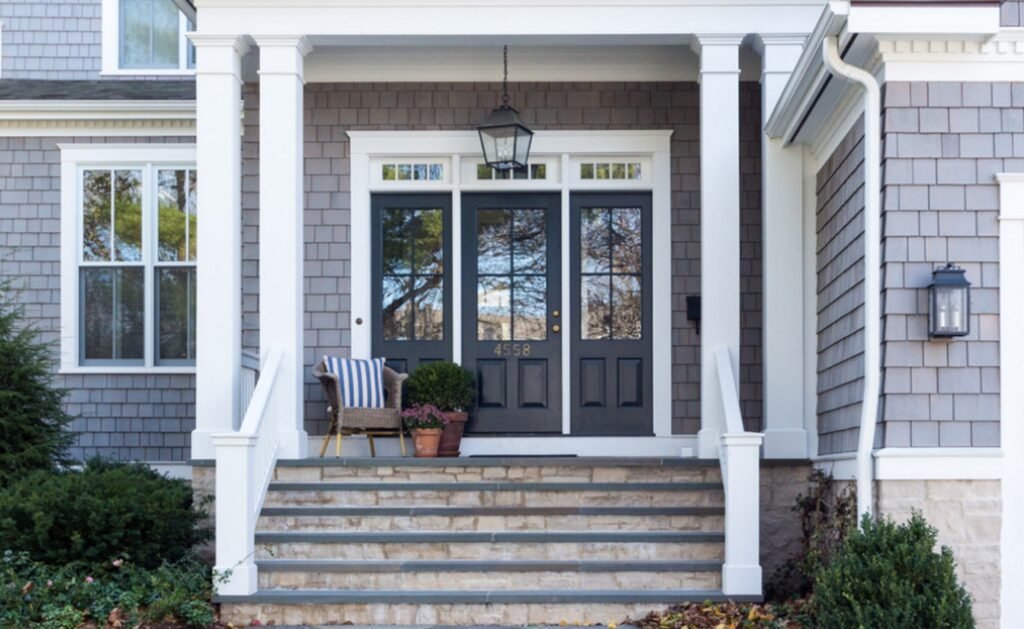How does your house look to your neighbors? Could your home use a little improvement?
Years of blowing snow, dripping rain and the steady tread of foot traffic had finally taken its toll on your house front steps.
Photo by Creber Construction, Inc. – Search exterior home design ideas
You can increase that curb appeal easily just by sprucing up your front steps and landing.
Wherever you living (townhouse, house, ranch, etc) this is one home improvement that you shouldn’t pass up.
Wooden Front Steps: Despite its well-maintained coat of paint, the old fir steps can become after a while soft and splintered. You need to replace any treads and steps that are too worn or splintered. Otherwise you need to clean the steps with high pressure water.
Total cost = Wood replacement cost plus paint or varnish cost
Brick Front Steps: It worth to replace brick front steps. For sure, brick front steps can increase the aesthetic appeal and overall value of a house. Brick steps need mortar refilled or replaced every so often to keep them looking fresh. However, the cost of bricks, mortar, and sand is small (between $ 0.5 and $ 3.00/brick).
Concrete Front Steps: Old houses and even middle-aged ones, often have concrete front or back steps that have felt the wrath of the elements over the years and are crumbling along the edges. Concrete steps that are broken or crumbling are both unsightly and dangerous. Fortunately repairing them is fairly easy. Unfortunately, there is no way anyone here can possibly tell you what to expect to pay since prices vary in different regions and we can’t know exactly what you are replacing.
Stone Front Steps: Stone, ranging from granite to sandstone, is also a popular material for front steps. The only problem is the grout is always going to allow water to pass through it unless you find a good sealer and apply it every year. Whenever the water penetrates and then freezes underneath it forces the tile upward.
Repairing cost = adhesive cost plus sealant cost
How to Insulate the Gaps between the Garage Door and Wall (howtobuildahouseblog.com)

